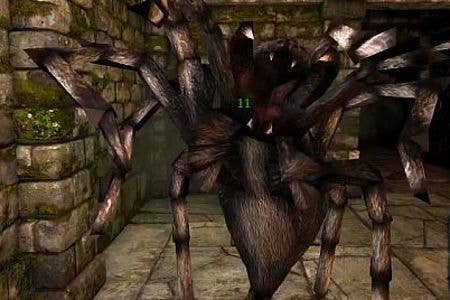Going Underground
Legend of Grimrock developers Almost Human on dungeons, community engagement and hitting the niche
Finnish studio Almost Human has been attracting more attention that you might expect for a company which is working on a niche, PC only title for a core market, most recently by altering the UI on their old school dungeon crawler Legends of Grimrock at the request of a disabled fan.
With the team's attitude and work on Legends of Grimrock continuing to impress, GamesIndustry.biz got in touch to get the lowdown on the studio's ethos.
It is mostly a personal choice. We love the genre and we feel the community deserves a modern dungeon crawler that reflects the magic of the good old ones, like Dungeon Master and Eye of the Beholder. This is a mission for us, and the only way to do it was as an indie studio. I guess the big studios just can't take the risk with such an approach. On the other hand, it is easy to differentiate from the big guys with this kind of approach. And there seems to be a demand for such a game, so everything happens to work just fine also business wise.
There will probably always be mainstream games that try to please everyone. It is a fact that some of them do sell very well. But it looks like there is definitely also a demand for games that are targeted to the niche market. In a way there is less risk in the niche market because there is less competition. But of course, you have to be prepared for lower sales than in the mainstream market. That's why the niche market is better suited for the small indie studios.
"The main problem in the bigger studios is that the decision bureaucracy is more complicated and there is no way they can response to the requests of the their fans in such an interactive way."
We are very humbled by the publicity our response created. We never imagined anyone would care. Right from day one it has been very important for us to have a close relationship with the community and fans. After all, they are the ones we are making the game for! We think any developer could benefit from it, despite the size of the studio. The main problem in the bigger studios is that the decision bureaucracy is more complicated and there is no way they can response to the requests of the their fans in such an interactive way.
Everything has to be approved through management and weighted against maximizing profits. The only way this kind of close relationship can work is when the developer himself is the one making the decisions, like it is in an indie studio. And we think the community appreciates the fact that they have direct access to the decision maker. It makes them feel like they are taking part in the development of the game. And they are actually playing a very important role. They are kind of our fifth member of the team.
We treat the feedback the same way we treat any feedback from any team member. We take it seriously and try to understand the reason and meaning behind it. In case the reason is valid, we project task to our schedule and resources and make a decision about it.









